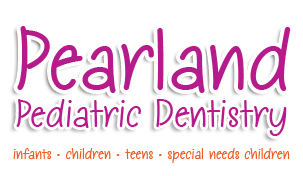COVID-19 Office Updates
April 7th, 2020
Hello from Pearland Pediatric Dentistry. At this time, following Governor Abbott’s executive order, our office is only open for emergency cases. We anticipate being back to our normal schedule on May 4th, 2020. We will keep our patients and community informed through our Facebook and Instagram pages. We are currently working on contacting our patients by phone to reschedule appointments. If you have questions, concerns, or a dental emergency we are asking patients and parents to call us at 713-436-4080 and the answering device will contact Dr. Clark.
As always, to keep your whole family’s smile healthy and happy we stress a healthy diet and to limit snacking. We follow the American Dental Association recommendations when suggesting dental care tips to our patients. Remember that every time you have something to eat or drink, your mouth becomes an acidic environment which promotes the formation of tooth decay. This is why it is important to not constantly snack on food or sip on drinks. Of course, brushing twice a day and flossing at least one a day will help decrease the chance of cavities!
To stay active while spending time at home Dr. Clark’s family is participating in a virtual exercise challenge with another family. Each day, one family member comes up with a new exercise routine for everyone to try out. One day the challenge was to get 10k steps and another day they had to do 4 rounds of certain exercises. Also, Dr. Clark’s daughters have also enjoyed taking their dogs for walks around the neighborhood.
Other than exercise and spending time outside the house Dr. Clark keeps in touch with her friends more often than normal. She is also learning a lot through webinars. Since her family isn’t busy with after school activities, they also take the time to teach her girls more life skills (their favorite is cleaning the toilets).
Though this time is challenging for so many we encourage you to enjoy this time with your families! Enjoy having time to cook and eat together. Find joy in the simple things and continue to have a strong faith and hope! Try to focus on the positive things and accept that there are a lot of things out of your control. It is important to find things to laugh about every day and also find at least one thing to celebrate each day!
We hope we get to see our lovely patients again soon! Until then, we wish everyone health and safety.






